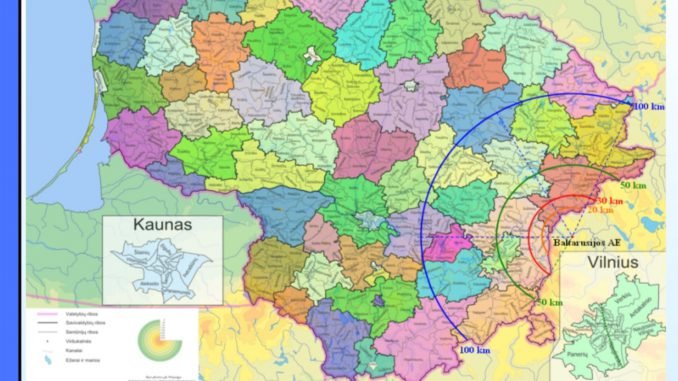
VATESI chief Michail Demcenko said IAEA experts last week conducted the Seed mission but did not study the environmental effects of the nuclear construction site. In his words, the mission analyzed the resistance of the power plant’s architectural design to outside threats.
The full scope of the Seed mission includes six modules. Demcenko said IAEA experts scrutinized the nuclear facility under construction in Belarus under two of six modules, therefore, the mission is not full-scope.
“Based on the information published by IAEA, the IAEA Seed mission was not conducted in full scope: merely one or two modules of the six possible modules were completed in connection to the resistance of the nuclear power plant design against external threats. Experts of the mission did not look into how Belarus chose and checked the location for the nuclear plant or the environmental effects of the nuclear power plant’s operations – these are the main issues Lithuania is most concerned about,” the VATESI chief said in a comment communicated to BNS by the inspectorate’s spokeswoman Asta Mensonė.
“One of out two good practices specified by the IAEA Seed mission experts is so far the Belarusian side’s pledge to conduct a thorough probabilistic assessment of the safety impact of internal and external events. Experts of the mission also suggested improving the licensing documents that have to do with electromagnetic and lightning threats, also due to the seismic soil acceleration characteristic of the site,” said Demcenko.
“The proposal was to consider the possibility on future actions to improve safety, as specified in the IAEA report on the Fukushima Daichi disaster, which shows that the actions have not yet been completed and planned. There are doubts whether Belarus will manage to do this by the planned launch of the first energy block in 2019,” he added.
In Demcenko’s words, more detailed conclusions on the results of the Seed mission and acceptability of the safety level of the Astravyets nuclear power plant would require analyzing the mission’s final report, which IAEA has pledged to submit to Belarus within 90 days. Minsk has said it would be made available to the public.

Be the first to comment